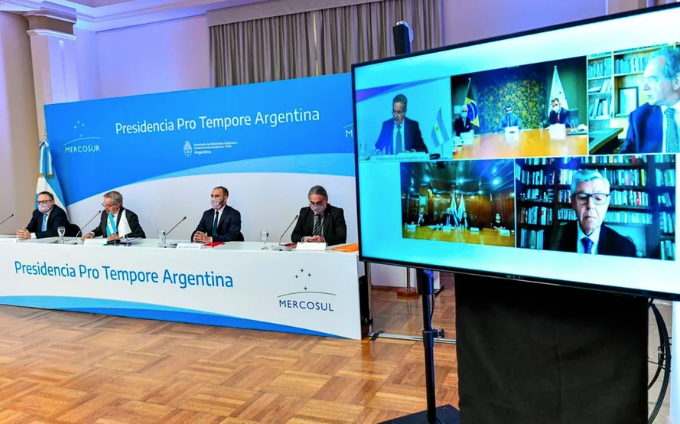Despite political ups and downs, economic storms, the COVID-19 pandemic, and other challenges, we Latin Americans have a vocation for integration. We have the intention, the spirit, the mechanisms, and the institutions, we even have important and very admirable results in some areas. The only thing we lack is to effectively implement integration.
According to a report prepared by the IDB, INTAL and Latinobarómetro, more than 70% of people in Latin America look favorably on economic integration and are aware of its benefits. The percentage is even higher among young people. It is also encouraging that more than half of the region’s inhabitants, 53%, consider it positive and necessary, according to the study Latin Americans’ opinion on democracy, institutions and regional integration conducted by the same organizations.
Among the integration mechanisms we have in the region, the most effective, and with the largest number of inhabitants, is Mercosur. With a population of close to 300 million people and a GDP of more than 1.2 billion dollars (2020), the bloc has only four active members (Argentina, Brazil, Paraguay, and Uruguay) each year. The bloc also has a Parliament that represents the citizenry of the member states, and allows the free movement of people between countries, albeit with some specif differences in details.
With all this baggage in its favor, Mercosur has served in its more than 30 years of history as the best possible scenario for cooperation and rapprochement between countries, and is, in my opinion, capable of taking the step towards the next stage: full and effective integration. And to achieve this, it appealed to what was undoubtedly an inspiration for the 1991 Treaty of Asunción: the European Union. But not as an instruction manual, or a drawing to be traced, but as a map of the possibilities and opportunities that will present themselves in the future.
The successes that Europe has achieved so far in its process can be attributed to the fact that the founding countries worked on establishing three fundamental issues: what concerns each country, what they could achieve together, and, finally, in what matters they necessarily need to cooperate. In the first category, each member state legislates and regulates issues such as public health, sport, industry, tourism, education, civil protection, and culture, sometimes with the EU support.
Achievements within the framework of the EU include the common currency, the customs union, the homologation of academic certifications, and support for the less developed members of the bloc. Activities that require great technological development, massive capital investment, or with impacts beyond each country, such as the space program, humanitarian policy, and environmental protection, are part of what must necessarily be done jointly.
I am by no means trying to oversimplify this issue since the challenges are not minor. In spite of its many achievements, Mercosur does not yet have a joint legal system. There are also differences among its members regarding the fundamental requirement of supranationality, i.e., the concept that to move effectively toward a model like the European one, in many matters, it must be accepted that common interests will outweigh particular national interests.
I note that supranationality is not necessarily a matter of differences in criteria, but rather that, in some cases, the very Constitutions of these countries do not accept it as a concept. Although there is a long road ahead, there is also a quite successful history behind Mercosur, a series of undeniable achievements, and, above all, a solid vocation for integration among citizens.
So far, we have gone through periods of greater rapprochement on economic and trade integration issues, interspersed with periods of less interest in the pursuit of common objectives. However, far from getting frustrated, we must persevere and seek those integration spaces where the common interest prevails which is not always necessarily commercial – to continue achieving integration milestones that benefit our citizens globally.
What is required is to continue the effort and foster the political will so that Argentina, Brazil, Paraguay, and Uruguay, as well as all the countries that join in the future, make Mercosur evolve from well-intentioned cooperation to effective integration.
Translated from Spanish by Janaína Ruviaro da Silva











